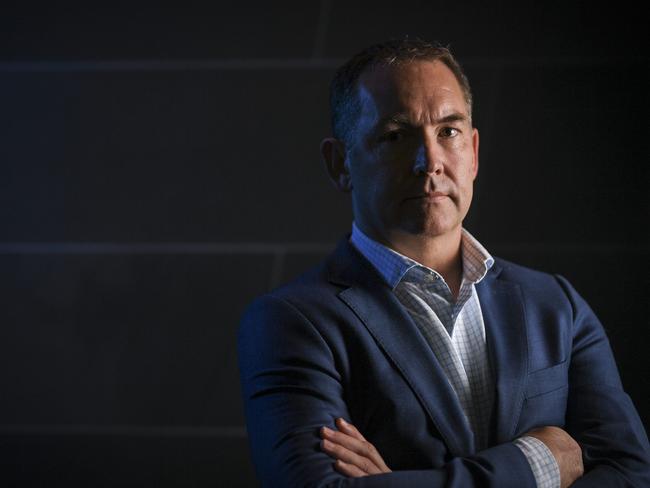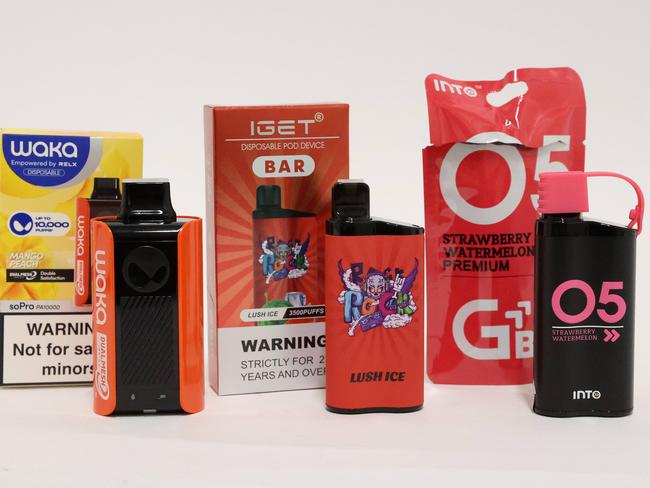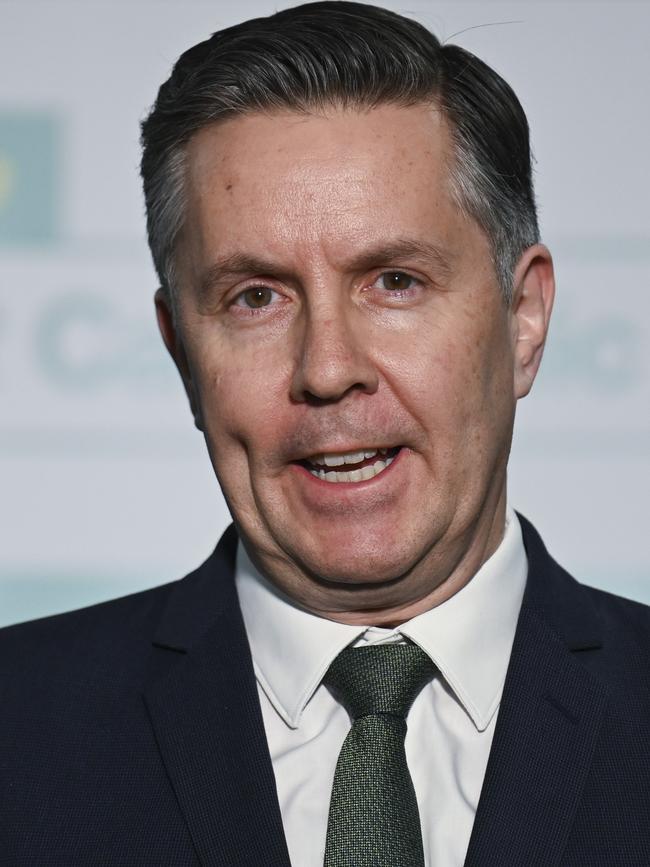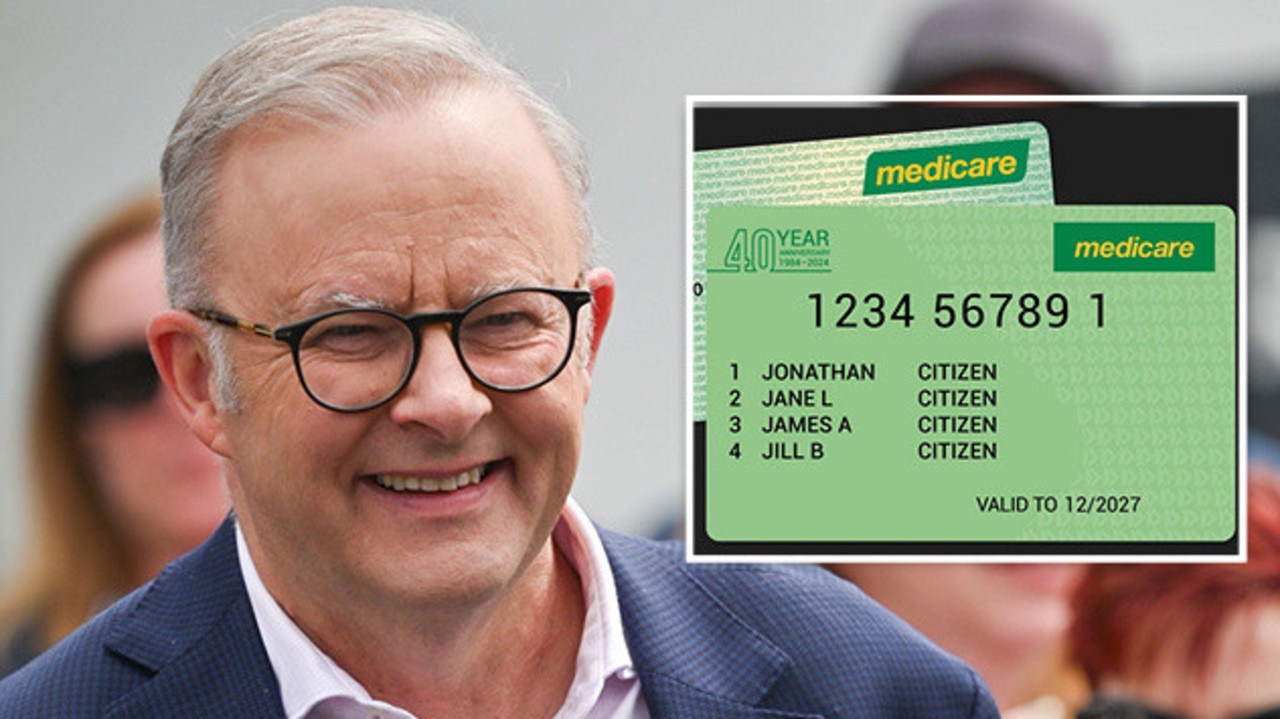Health Minister’s soft new war on vapes slammed by former cop
A stealthy move by federal Health Minister Mark Butler to quietly walk back the policing of vapes has been condemned by industry bodies and a former cop.

NSW
Don't miss out on the headlines from NSW. Followed categories will be added to My News.
A former federal police officer who was the architect of Australia’s tobacco strike force has blasted Health Minister Mark Butler for a “major backflip” on police enforcing the government’s softened new vape laws.
Rohan Pike, who created and led the Australian Border Force’s Tobacco Strike Team, said Mr Butler’s shocking revelation that the new laws will only be enforced by state health authorities and not police will make it “very difficult” to stamp out organised crime.
“They are attempting to deal with this with health inspectors, TGA inspectors and the like, but they don’t have the tools and investigative skills to go after the organisers of this problem,” he told News Corp.
“You need willpower to address such a huge problem, sending criminals tersely worded letters isn’t going to cut it.

“This is a unique crime type where the retail level is the window into the crime … The police are the only ones capable of planning and organising an effective response.”
Mr Pike said that while he understood police had other responsibilities and pressures, health departments had a “very poor record” of enforcing legislation, including against plain-packaged tobacco: “Every day there are tens and thousands of coloured packaging tobacco being sold.”

The softer stance comes after Labor weakened its initial vape legislation — which would ban vapes being sold without a prescription — in a deal with the Greens.
In an interview at the end of the final sitting week of parliament when the government was caught up dealing with rogue Senator Fatima Payman — Mr Butler quietly revealed police will not be used to enforce the Albanese government’s new vape laws that will allow disposable vapes to be sold without a prescription in pharmacies.
“Look, we’re not going to use the police. I mean, this is a health law. It’s a public health law,” he told Triple J Hack.
“And every state and territory have health authorities who are responsible for enforcing these sorts of public health laws.”

The latest comments directly contradict with Mr Butler’s previous public commentary on the issue, where he has continuously said he met with state police commissioners and experts on how to stamp out the use of illegal vapes in fuelling crime.
“We are working very actively, very collaboratively across jurisdictions with Health and Police Ministers, and also health and police departments around the country,” he said as recently as April 23.
“We are seeing a very strong collaboration, a very strong joint commitment to addressing, arresting and reducing the use of vapes.”
Australian Convenience Stores Association boss Theo Fukkare said Mr Butler’s new stance was a “major backflip”.
“After talking tough and collaborating with police through their working groups over the past two years, now to come out and say this is a health issue and police won’t be used to address this is just astounding,” Mr Fukkare said.

“Everyone knows, by the minister’s own admission, organised crime is behind this and the fact that police aren’t going to be involved to address the crackdown of the illegal sales of these products just goes to show this policy will spectacularly fail.
“The fact that he dropped it on the last day of parliament before their five-week winter break tells us again he is just trying to hide this from the Australian people.”
However Mr Butler told News Corp on Friday that the approach had not changed.
“Every state and territory has health authorities who have primary responsibility for enforcing these sorts of public health laws domestically. State police will be called in for support when necessary,” he said.
Mr Butler said the Australian Border Force was leading enforcement at the border, while the TGA was leading compliance and enforcement in relation to unlawful advertising, and assisting the states and territories with enforcement along the domestic supply chain, including wholesale and retail supply, and commercial possession.

“The Australian government has provided funding to the Australian Border Force and the TGA to enforce these reforms,” he said.
“Compliance and enforcement operations are planned, including joint operations with state and territory partners. State and territory police and/or the Australian Federal Police will be called in when needed, like when organised crime groups are involved.
“We have seen state police get involved in organised crime busts in in Victoria.
“The legislation we passed in the parliament has very serious penalties for non-compliance, fines of up to $2.2 million and prison time of up to seven years for non-compliance.”
Do you have a story for The Daily Telegraph? Message 0481 056 618 or email tips@dailytelegraph.com.au




